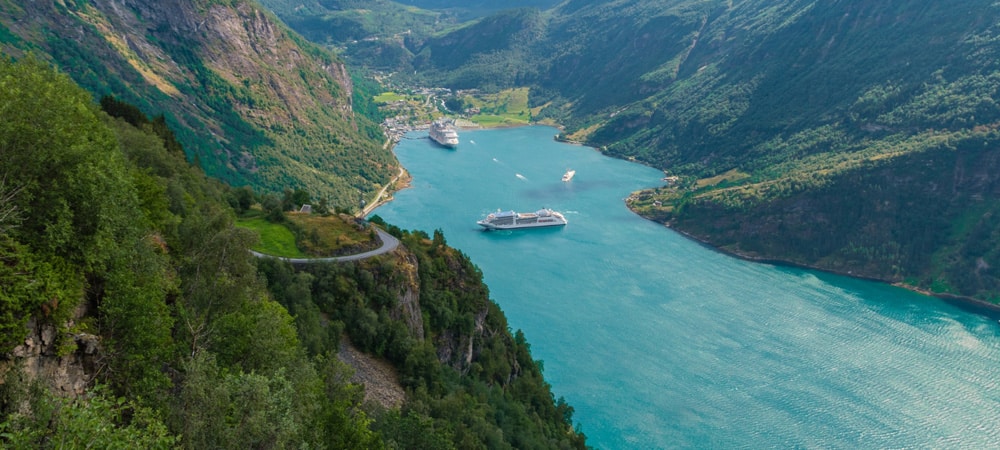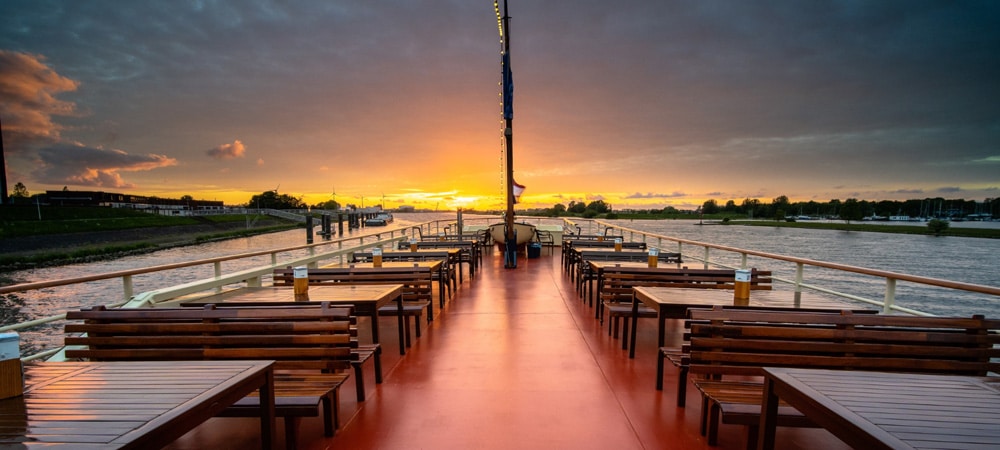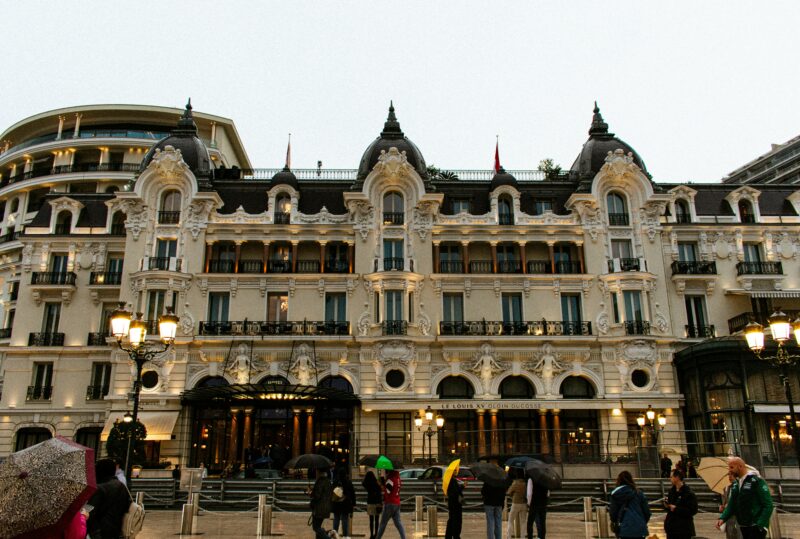River cruises represent the next frontier in sustainable luxury travel. These ships glide quietly along scenic waterways, offering intimate experiences without the carbon footprint of mega‑liners. Their smaller size means lower energy use and emissions, while hybrid engines and solar panels ensure quieter, cleaner journeys.
A Natural Fit for Sustainability
River cruises are commonly smaller than ocean liners. They carry fewer guests. Engines are less powerful. That means lower energy use and emissions than big ships. Because they travel inland, they rely more on shore power and less on fuel. Cruisers often dock near cities. Many lines use battery or hybrid propulsion in port to reduce pollution.
Powerful Green Practices on Board
River cruise companies are actively removing single‑use plastics. Various cruise lines have banned plastic straws, bottles, and bags. They replaced them with bamboo straws, refillable bottles, and glass toiletries. Shower heads save water—around 40% less per shower. Refillable amenity dispensers reduce tiny plastic packaging.

Wellness Meets Environmental Care
Cruise lines pair wellness programming with eco goals. Yoga, tai chi, cycling, hikes, and active shore excursions are common. They add e‑bikes, bikes, hiking paths, and fitness leaders onboard. Line up a day with spa, gym, and green shore trips. Active fosters wellness and less reliance on motorized tours.
Real‑World Green Results
These actions aren’t just for show:
- Single‑use plastic: nearly eradicated across fleets
- Water efficiency: up to 40% savings in showers and low‑flow systems
- Fuel cuts: Hybrids deliver ~20%; ocean/river ships cut 40% emissions
- Conservation funding: Many projects are ongoing in Cambodia, Kenya, and Africa at UNESCO sites
Luxury With Purpose
River cruises, such as the best Mekong cruise, offer comfort without compromise. Guests enjoy spacious suites, spa treatments, heated pools, e-bikes, gourmet dining, and eco-friendly transport for onshore trips.
These journeys blend style, wellness, and sustainability in seamless harmony. Many cruise lines elevate the experience further with Michelin-inspired menus, curated excursions, wellness classes, local champagne tastings, and elegant boutique ship designs. It’s luxury with a lighter footprint – crafted for mindful travelers.
Guests Actively Contribute
Travelers on river cruises don’t just enjoy the benefits of sustainable travel – they actively contribute to them. They pack light using digital documents, scan QR codes instead of relying on printed materials, and often skip unnecessary daily laundry to conserve water and energy.
Many use refillable bottles, choose to offset their carbon emissions, or even take part in local clean-up efforts during shore excursions. Onboard, they learn about green practices through educational talks and support local farmers and artisans with every meal. It’s a travel experience built on shared responsibility and meaningful impact.
Innovations in Vessel Design
River cruises increasingly embrace cutting-edge green engineering. Solar panels now dot ship rooftops, helping power onboard systems and reducing diesel use. Electric propulsion and hydrogen fuel cell prototypes promise near-zero emissions, especially on short inland routes.
Waste-to-energy systems are also emerging: some ships convert organic waste into biogas to generate electricity onboard. LED lighting, energy-efficient appliances, and smart navigation tools further shrink carbon footprints. These innovations help stakeholders meet or exceed strict EU emissions standards- and set new benchmarks in green travel.
Protecting River Ecosystems
On-water conservation is as vital as onboard sustainability. Noise and propeller disturbance threaten river fauna, including dolphins and manatees. Responsible ship design—such as quieter electric drives and slower cruising in fragile zones—helps reduce such impacts. Meanwhile, waste controls prevent plastic and sewage from entering rivers.
Operators are partnering with initiatives to monitor and protect water quality, particularly on rivers like the Nile, Mekong, and Yangtze, which funnel plastic into oceans. This stewardship ensures river cruising doesn’t just minimize harm—it becomes a driver of ecological awareness and action.
Responsible River Tourism Policy
River cruising is also shaping travel policies. Madhya Pradesh is planning a 120 km river cruise along the Narmada River in India. They’re evaluating environmental and social impacts through pilot schemes before building terminals—an approach rooted in sustainability and community benefit.
European rivers rely on certifications like GreenShip and Greenaward, which enforce eco standards for emissions, waste, and noise, with many riverboats already certified. These certifications help align operators with local conservation goals. They also reassure regulators and passengers that green river cruising is more than marketing—it’s policy-driven and measurable.
Local Immersion With Low Impact
Unlike massive ocean liners, river cruises dock directly in town centers, eliminating the need for long transfers or additional transport. This proximity allows travelers to step off the ship and explore on foot or by bike, reducing emissions while fostering meaningful connections with local culture.
Whether shopping at a village market, attending a traditional music performance, or sampling regional cuisine, the experience stays intimate and authentic. By spending more time in smaller communities, river cruises help distribute tourism income more evenly and avoid the strain of overtourism seen in major hubs.

Adaptive Itineraries For Changing Climates
River cruise companies are adapting quickly to climate realities. Droughts, floods, and shifting river levels are reshaping travel routes, prompting companies to develop flexible itineraries and hybrid vessels that can operate in changing conditions.
Some lines now use real-time weather and water data to adjust navigation or switch seamlessly to luxury coaches when needed.
This agility keeps experiences smooth and enjoyable while acknowledging environmental shifts. It also highlights the importance of protecting these fragile ecosystems, making guests more aware of the planet’s changing rhythms.
Setting New Standards in Green Hospitality
The river cruise industry is raising the bar for eco-conscious travel. Ships are being built with sustainable materials, green roofs, and intelligent waste systems that recycle water and separate refuse.
Culinary teams prioritize seasonal menus featuring ingredients from nearby farms, thereby reducing transportation emissions and supporting local economies. Even the staff training emphasizes sustainable service, from reducing food waste to eco-friendly housekeeping.
River cruises sit at the crossroads of luxury and sustainability, offering a serene travel experience without compromise. These vessels are small, so they emit less and cause less disruption to waterways. Onboard, cabins go plastic-free, while energy-smart technology—such as solar panels, battery propulsion, and shore-power connectivity—reduces fuel use and pollution.
Guests enjoy spa suites, gourmet dining, cultural journeys, and wellness programs, all while supporting community-driven shore excursions and local economies. With this blend of comfort and conscience, you don’t have to sacrifice your values—you enrich them. That harmony is precisely why river cruises emerge as the next frontier in sustainable luxury travel.
River cruises offer a unique blend of sustainability and indulgence, proving that mindful travel can be both enriching and luxurious. Embrace the tips and innovations shared here to plan eco-smart adventures that leave a positive impact on you and the planet.
More Tips to Grow Your Business
Revfine.com is the leading knowledge platform for the hospitality and travel industry. Professionals use our insights, strategies, and actionable tips to get inspired, optimize revenue, innovate processes, and improve customer experience.
Explore expert advice on management, marketing, revenue management, operations, software, and technology in our dedicated Hotel, Hospitality, and Travel & Tourism categories.






